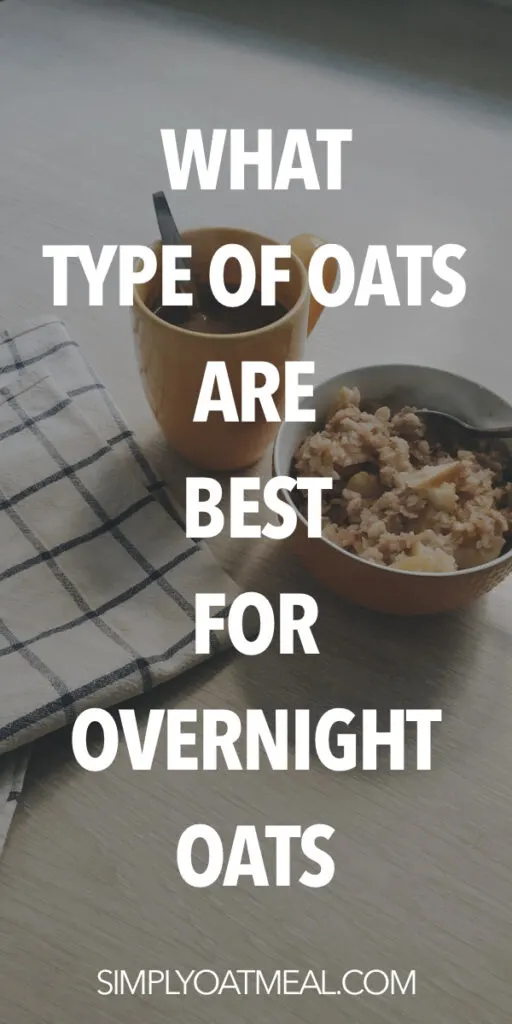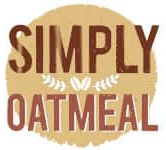Oatmeal is one of the healthiest food choices available, and you can find a wide range of overnight oats recipes to try nowadays. Whole grain oats are used in many different ways to prepare overnight oats, but is the type of oats important?
What type of oats are best for overnight oats? Rolled oats are the best oat type for preparing overnight oats. The reason is simple, quick oats or finely processed oat variants become too mushy and pasty, while steel cut oats are too hard when only soaked and not cooked.
If you want to lead a healthy life, you can include oats into your diet plan. Among the various oatmeal options available, overnight oats stand taller with some unique benefits.
Regular oatmeal preparations often make many people feel bored due to their monotonous nature and similarity in combinations. If you are one of them, you can opt for this fancy make-ahead breakfast option.
Overnight oats have become a go-to meal prep for a large number of people. Let us explore more about overnight oats, including the best type of oats to use and why selecting the right oatmeal type is important while soaking oats overnight.
Are overnight oats different?
Overnight oats are different because the oatmeal is soaked in liquid, not cooked, before serving. The oatmeal is hydrated in the liquid making the grain soft, chewy and digestible, therefore overnight oats do not need to be cooked in order to be edible.
If you use the right kind of oats for overnight oats, you can make your breakfast extremely delicious, nutritious and easily digestible. There are numerous choices available when it comes to selecting oatmeal, but overnight oats are not a type of oats, it is an oatmeal preparation.
Common oatmeal variants are steel cut oats, rolled oats and quick oats. These are not the only oatmeal kinds, just the most commonly purchased in the market.
For best results, it is recommended to use rolled oats to make overnight oats. When soaked, the oats have a silky smooth and slightly chewy texture without turning overly mushy.
Can you eat raw oats?
Health experts discourage people from eating dry raw oats. If you eat raw dry oats, you may experience digestive issues or constipation.
What could be the reason? The oats absorb moisture from your body causing dehydration. When there is not enough liquid, then they build up in your intestines or other parts of your stomach causing indigestion and difficulty to empty your bowels.
Furthermore, raw oats contain the anti-nutrient known as phytic acid. This acid makes it difficult for your body to absorb nutrients by binding to minerals such as zinc and iron and zinc.
Soaking the grain helps to reduce phytic acid in overnight oats. Therefore, it is important to hydrate oatmeal before consuming without cooking, then you don’t need to worry about any health issues.
Do oats have to be soaked?
It is always advisable to soak oats to make them more tasty, edible and nutritious. When you soak oats overnight, they undergo a process pretty similar to cooking without involving any heat involved.
Soaking the grain efficiently breaks down the starches to make the absorption much easier for your body to process. Lowering the natural phytic acid, the soaking process promotes better utilization of the available nutrients.
So, overnight oatmeal encourages better nutrient absorption and smoother digestion compared to dry or cooked oats. Overnight oatmeal made using rolled oats are the better option as they produce the best outcome when soaked.
Can you make overnight oats with instant oatmeal packets?
Rolled oats oats are the recommended type of oats for preparing overnight oats. When using instant oatmeal packets, the soaked preparation turns gummy and pasty, not the most palatable experience.
All packaged instant oatmeal options are heavily processed products. The fine granules transform into a paste, not a chewy oatmeal,
Additionally, many people try to also use instant oats or quick oats to make overnight oats. Although quick oats bare similarity to rolled oats, they are not a good choice as they become mushy when soaked more than a few hours.
Finer cutting and thinness are the fundamental differences between rolled oats and quick oats. They undergo steaming, rolling, dehydrating, and toasting before being made available for the customers.
This type of processing demands only minimal cooking time. The absorption rate of these products is very high. If you soak these rolled oat flakes in your preferred liquid overnight, you can convert them to a wonderfully thick porridge without cooking.
Do you have to cook steel-cut oats?
Although there are plenty of steel cut overnight oats recipes, it is not the recommended preparation method. Steel cut oats are extremely dense and do not soak very well, the kernels remain tough, chewy and not very digestible.
Whether cooked or uncooked, soaking oats is highly recommend because it slowly ferments the grain and add exceptional nutritional value. Soaking the steel cut oats is the best choice available to eat tasteful and nutritionally-balanced oats.
However, it is recommended to cook steel cut oats after soaking. If you want to have a richer, nutty flavor, you can toast them before simmering.
For toasting, you need to completely drain and toast the dry steel cut oats in a skillet or pan by keeping the heat at medium level. The toasting process should be stopped when the oats turn golden and fragrant.
Can you use water to make overnight oats?
Although most people prefer milk or other types of milk substitutes, you can use water to soak overnight oats. It can be done if you are comfortable with the bland taste, want to reduce overall calories, or want to impart other bold flavors with fruits, nuts, and seeds instead.
If you have made up your mind to use water for soaking, you can add a few extra mix-in ingredients like yogurt, mashed banana or nut butters to make it taste better.
Based on your preference, decide whether you want to use water, juice, milk or nondairy substitutes to make overnight oats.
What are the major health benefits of overnight oats?
If you choose the right type of oats for overnight oats, there are many health benefits to be enjoyed from the full absorption of the whole grain. Oats help to reduce cholesterol, promote fullness which can aid in weight loss, stabilize blood sugar and improve digestion.
Other prominent advantages to eating overnight oats are enhanced digestibility, increased amount of resistant starch, high versatility, easy preparation, and improved taste.
Oats are a rich source for a broad variety of essential minerals and vitamins, including niacin, manganese, pyridoxine, phosphorus, potassium, magnesium, calcium, copper, pantothenic acid, iron, thiamin, folate, and zinc. You don’t really need to search any further for a better food source to get dietary fiber and plant based protein.

Which oats are the best oats for overnight oats?
The best oats for overnight oats are rolled oats. The major reason is that the flakes absorb the liquid more efficiently compared to other versions, while maintaining a slight chewiness without turning too mushy or soggy.
There are no restrictions in using a particular type of oats for overnight oats. You can soak any type based on your preferences.
If you want to focus on your health more than anything else, you can choose rolled oats. Overnight oats made using rolled oats are the best choice available for health-conscious people.
Many people want to explore different tastes and flavors while maintaining good health. If you are one of them, soaking oatmeal imparts added nutritional value while decreasing phytates and increasing resistant starch.
Take your oats to the next level by soaking rolled oats in liquid for at least 12 hours before consuming. With the multitude of different recipes and oatmeal toppings, you can never get tired of eating the same combination over and over again.
Related: Best Rolled Oats Brands
